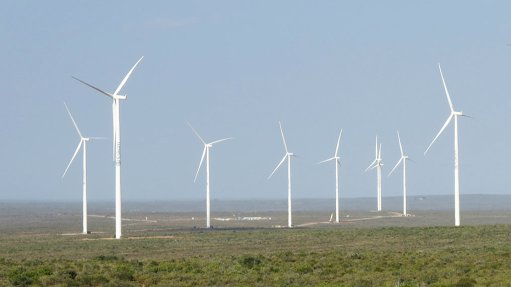Three out of three is bad
Baby, we can talk all night; But that ain’t getting us nowhere; I told you everything I possibly can; There’s nothing left inside of here; . . . Now don’t be sad; ’Cause two out of three ain’t bad.”
That was how the Meatloaf song of yesteryear went, and that was how South Africans seemingly felt when only two of the three credit ratings agencies downgraded the country’s investment rating to ‘junk’. That was until March 27. On that fateful afternoon, after the South African financial market had closed, Moody’s made it three out of three, rating South Africa as ‘junk’.
Confusingly for noneconomists, there was nothing major that had happened that afternoon: no announcement from the President about a not-so-well-thought-through economic policy, no news from the opposition or the labour movement about more challenges confronting the economy. It is too easy to lay blame for the decision by Moody’s at the door of Covid-19, the virus with a name that sounds like a musical band’s, which is sweeping the world. While Covid-19 will likely cause significant destruction, including igniting a global recession, it was not the reason behind the decision by Moody’s. If anything, Moody’s had lost trust in the South African government, after having displayed the patience of a saint.
Surprisingly, the focus has been on the move by Moody’s only; what has been neglected is the likely next move by Fitch and Standard & Poor’s (S&P’s). In 2017, both conferred ‘junk’ investment status on South Africa. Surely, the expectation is not that this is it for them. Rating-wise, this is not as low as they can go. There is a Moody’s C, S&P’s D, and Fitch D – D standing for ‘default’. South Africa is now closer to the bottom of all three ratings than it is to the top.
If you are a regular reader, nothing about the downgrade by Moody’s would have come as a surprise. But perhaps the only surprising thing is why it took so long to materialise. On March 27, South Africa’s investment status went from fact to fiction in much the same way as Lance Armstrong’s book on winning the Tour de France an unprecedented five consecutive times was moved from the nonfiction section to the fiction section of Exclusive Books when he was stripped of this title, after he had admitted to taking performance-enhancing substances.
As a consequence of the downgrade, South Africa will be removed from the World Government Bond Index, which will make South Africa’s government debt a ‘no-no’ for many funds. This will in all likelihood see the sell-off of billions of dollars in South African government debt. It will be interesting to see Pretoria’s barometer of investments in South Africa. A Bloomberg article published on November 6 and titled ‘South Africa makes headway in $100-million investment drive’ cites the President as saying “his administration is on track to lure $100-billion in new investment within five years, with more than $16-billion already committed and many more projects in the pipeline”.
Somehow, I do not think that another South African Investment Conference is going to result in more investment coming South Africa’s way. If anything, investment will come from firms that are already invested in the country.
The scary part, however, is who will be willing to invest in South Africa from abroad and whether these are the investors that South Africa would want to have. This should be a real concern. As for local investors, I fear that pension funds will be unwilling investors, as they are ‘prescribed assets’.
All this reminds me of a riddle: in a bacon-and-egg breakfast, what is the difference between the chicken and the pig? The answer: the chicken is involved, but the pig is committed! The South African government will indeed be involved, as in getting South Africa to the brink, which, I am afraid, leaves the taxpayer committed.
Article Enquiry
Email Article
Save Article
Feedback
To advertise email advertising@creamermedia.co.za or click here
Press Office
Announcements
What's On
Subscribe to improve your user experience...
Option 1 (equivalent of R125 a month):
Receive a weekly copy of Creamer Media's Engineering News & Mining Weekly magazine
(print copy for those in South Africa and e-magazine for those outside of South Africa)
Receive daily email newsletters
Access to full search results
Access archive of magazine back copies
Access to Projects in Progress
Access to ONE Research Report of your choice in PDF format
Option 2 (equivalent of R375 a month):
All benefits from Option 1
PLUS
Access to Creamer Media's Research Channel Africa for ALL Research Reports, in PDF format, on various industrial and mining sectors
including Electricity; Water; Energy Transition; Hydrogen; Roads, Rail and Ports; Coal; Gold; Platinum; Battery Metals; etc.
Already a subscriber?
Forgotten your password?
Receive weekly copy of Creamer Media's Engineering News & Mining Weekly magazine (print copy for those in South Africa and e-magazine for those outside of South Africa)
➕
Recieve daily email newsletters
➕
Access to full search results
➕
Access archive of magazine back copies
➕
Access to Projects in Progress
➕
Access to ONE Research Report of your choice in PDF format
RESEARCH CHANNEL AFRICA
R4500 (equivalent of R375 a month)
SUBSCRIBEAll benefits from Option 1
➕
Access to Creamer Media's Research Channel Africa for ALL Research Reports on various industrial and mining sectors, in PDF format, including on:
Electricity
➕
Water
➕
Energy Transition
➕
Hydrogen
➕
Roads, Rail and Ports
➕
Coal
➕
Gold
➕
Platinum
➕
Battery Metals
➕
etc.
Receive all benefits from Option 1 or Option 2 delivered to numerous people at your company
➕
Multiple User names and Passwords for simultaneous log-ins
➕
Intranet integration access to all in your organisation

















